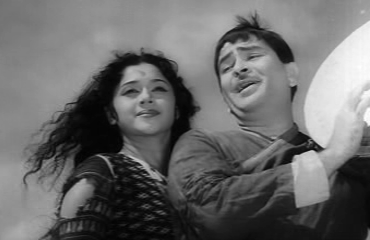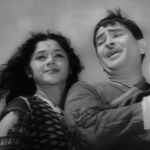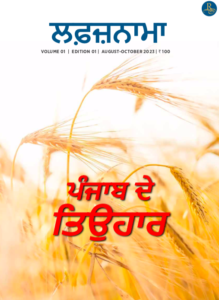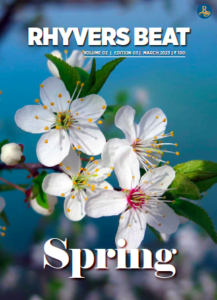Ten of my favourite muhaavara/lokokti songs

I must admit to a great fondness for proverbs: there is something about the earthy wisdom, the often humorous or even irreverent insight into human nature offered through these that is very memorable and hard-hitting. And (though I may be prejudiced here), there’s something about proverbs and idioms in Hindustani (muhaavara and lokokti) that is hard to beat. Many years ago, I remember reading a newspaper advertisement in which ‘Dhobi ka kutta, na ghar ka na ghaat ka’ had been translated into English—and the entire flavour lost in the process, even though there was really nothing wrong with the translation itself. The point being that there are some things that need to be conveyed in the original language (the ad was for a Hindi-language newspaper).
Old Hindi cinema tended to use a lot of proverbs and idioms. Characters often bunged in a muhaavara in dialogue (I have actually come across, in some films from the 40s and 50s, phrases that were immediately identifiable as proverbs, but which I’d never come across before otherwise). And, sometimes, there were proverbs in songs as well.
Therefore, ten songs that feature proverbs. Besides my usual criteria (the song should be from a Hindi film that I’ve seen, from before 1970), I added one more: that the proverb should be mentioned either in the first couple of lines of the song, or in the refrain. Note that I am allowing some poetic license in the use of the proverb: for instance, Oonchi-oonchi dukaan instead of the original Oonchi dukaan, or Sau-sau choohe khaake instead of Nau sau choohe khaake.
Here goes, then, in no specific order:
1. Begaani shaadi mein Abdullah deewaana (Jis Desh Mein Ganga Behti Hai, 1961): Literally, ‘Abdullah goes mad in someone else’s wedding’. In other words, someone getting worked up—whether excited or upset or just excessively concerned to the point of being intrusive—about something that isn’t even their business.
This song from Jis Desh Mein Ganga Behti Hai doesn’t really use the proverb in the context of its meaning, just as a handy little ditty to rhyme with the words following it. Though it features two people I don’t particularly like, it’s still a song I like a lot—mostly for the music and the rendition.
2. Ek roz hamaari bhi daal galegi (Bandi, 1957): A take on the common idiom ‘daal galna’: literally, for lentils to soften, but meaning to accomplish something—as lentils are edible only when tender, so to have something reach the point where it’s finally successful, finally of use.
This hilarious song was first brought to my notice some years back when I made a list of funny songs, and I fell in love with it immediately. Kishore Kumar’s character, labouring away (none too successfully, either) at cooking a meal, dreams of the day when things will finally fall into place. His older brother will get a good job, life will start looking up. Hamaari bhi daal galegi, we too will live in comfort. The fun bit here is that the idiom used is so completely in keeping with the situation: Kishore’s character is actually waiting for a pot of lentils to cook.
3. Daane-daane pe likha hai (Baarish, 1957): ‘On every grain is written the name of the one who is to eat it.’ This is one of those proverbs that I’ve heard fairly commonly used even in everyday life, mostly in its literal sense: a delicacy ends up being eaten by someone who originally wasn’t supposed to have been among the diners. There is, however, a meaning beyond the literal one: that what is destined for you, will come your way. It needn’t necessarily be food. It could be anything, both tangible and not. As long as it’s written in your fate, it will come to you, whether you try for it or not.
Interestingly, Baarish had another song featuring a proverb: Yeh moonh aur daal masoor ki. Since I always stick to one song per film, I’m not going to be featuring that one in this list, though.
4. Kya hawa chali… sau-sau choohe khaaike billi Haj ki chali (Parakh, 1960): Translated literally, this proverb would be: ‘After eating many hundreds of mice, the cat goes off on Haj’ (the actual proverb is ‘Nau sau choohe khaake…’, which means ‘After eating nine hundred mice…’). The implication being that someone guilty and laden with sin pretends extreme piety and righteousness.
In Parakh, a film that centred round a wealthy man’s search for a truly honest, good person in a village, this song is especially apt: because everybody around, vying for that coveted wealth, is putting on a show. All of them are, in their own way, corrupt and self-serving, but their greed makes them pretend to be oh so good. This song, in its lyrics and its picturization, is one of the rare examples of a song that is all about the proverb and where everything comes together to showcase the true meaning of the proverb.
5. Andher nagri chaupat raja (Railway Platform, 1955): Another somewhat cynical proverb, and used in a song to full effect. ‘Andher nagri chaupat raja, take ser bhaaji, take ser khaaja’ literally means ‘A dark town and a crooked king; vegetables at a taka for a ser, expensive sweets (khaaja) for a taka’. More broadly, where the leader is corrupt, all will be corrupt. Whether you eat pedestrian vegetables or rich sweets, you’ll pay the same price for them.
‘Jis mol bhaaji us mol khaaja’ is lyricist Sahir Ludhianvi’s somewhat more user-friendly interpretation of ‘take ser bhaaji take ser khaaja’ but the meaning is clear: this is a land of the corrupt, everybody’s out to fleece everybody else. Sunil Dutt (in his debut film), Manmohan Krishna, Sheila Ramani and their companions here play a group of people stranded at a small railway station out in the countryside and obliged to survive somehow until they can move on—if they can survive that long, since there are enough people here trying to make a quick buck from the plight of the stranded travellers. The irony of it is that Sheila Ramani plays the princess of a province actually named Andher Nagri—though here, she’s travelling incognito.
6. Boodha hai ghoda laal hai lagaam (Sargam, 1950): The actual proverb in this case is Boodhi ghodi, laal lagaam (‘An old mare, with a red bridle’—a thoroughly ageist saying which implies that someone who’s old and therefore decrepit and ugly, is flaunting finery). Poetic license has been used to twist the gender around in the proverb in order to apply it to the gentleman who’s being made the butt of the joke in this song. An old man with a taste for the good life, he’s come to watch a puppet show—and Raj Kapoor, Rehana, and another couple, as the puppeteers/singers, sing a song that’s supposed to reflect the puppets (an old man with a young woman) but actually makes a snide remark about the audience.
7. Bholi soorat dil ke khote, naam bade aur darshan chhote (Albela, 1951): A fairly well-known song which uses a common proverb to describe a person (or other—it could be a place, an event, whatever). ‘Naam bade aur darshan chhote’ literally means ‘big names, but little when seen’: another way of saying that something or someone doesn’t live up to their reputation. This song from Albela tags on another initial line, also saying something along the same lines: Bholi soorat dil ke khote (‘An innocent face, but false of heart’).
In this situation, the proverb becomes an excuse for a ‘battle of the sexes’ duet: Bhagwan’s and Geeta Bali’s characters use it, and sundry other phrases, to teasingly fling taunts at the opposite sex.
8. Subaah ka bhoola shaam ko (Gehra Daag, 1963): A song that could pretty much be representative of the film—and which, ironically enough, espouses a motto that the singer herself goes against in the latter part of the film. Mala Sinha’s character in Gehra Daag falls in love with a kind, good-hearted man whom she realizes only much later is an ex-convict, no less than a murderer (played by Rajendra Kumar). Worse still, he is the man who murdered—though it was in self-defence—her brother. Here, though, in happier times and in the first flush of new love, she and a troupe of dancers perform onstage, singing a song of forgiveness. ‘If the one who was forgotten during the morning returns in the evening, he is not considered forgotten’ is the literal meaning; less literally, this means that someone who repents and returns to the flock should be forgiven and taken back, given a second chance.
9. Oonchi-oonchi dukaan pheeka-pheeka pakwaan (Pehli Jhalak, 1955): Literally, this proverb translates as ‘a high shop, insipid dishes’: the connotation being that the shop is very fine, but the dishes it sells are tasteless and bland. In other words, and applied to life in general, the outward trappings are fine and good, but the real worth is missing.
A proverb that’s fairly well applied in this situation. Vyjyanthimala’s character, a feisty girl who’s just witnessed a very wealthy woman berating a beggar, is shocked to discover that same wealthy woman presiding at a function to help the poor—in particular poor women. The hypocrisy of the situation strikes our heroine to such an extent that she makes a song and dance out of it.
10. Tikdambaazi: miyaan raazi biwi raazi (Adhikar, 1954): Adhikar is a good example of the way old Hindi films tended to include lots of now mostly forgotten proverbs in dialogues; this film had some memorable ones, for instance this pithy retort for someone who was piling on: “Jaan na pehchaan, badi khaala salaam!”—literally, ‘Neither an acquaintance nor even someone one recognizes, but “Greetings, dear old Aunt!”’)
And this song has not one, but two proverbs in its lyrics. The song starts with a variation on ‘Miyan biwi raazi toh kya karega qazi’ (literally, ‘when the husband is willing and the wife is willing, what will the qazi do?’, though that can be extended to imply that when two people who are the most invested in a common matter are in agreement, a third party is unnecessary). Later on in the song, ‘Chhuri bagal mein moonh mein Ram’ (‘a dagger under one’s arm, and Ram on one’s lips’) also occurs—a proverb which is very similar to ‘Nau sau choohe khaake billi haj ko chali’, in that both are about hypocrisy, about people who preach all manner of virtue, but are otherwise devious and evil.
What other songs can you think of that mention proverbs?
And, as an aside: outside of Hindi film songs, do you have any proverbs you especially like? I, for instance, have a fondness for ‘Na nau mann tel hoga na Radha naachegi’ (‘If there aren’t nine maunds of oil around, Radha won’t dance’—using flimsy and illogical excuses to get out of doing something).
Bring them on!


























